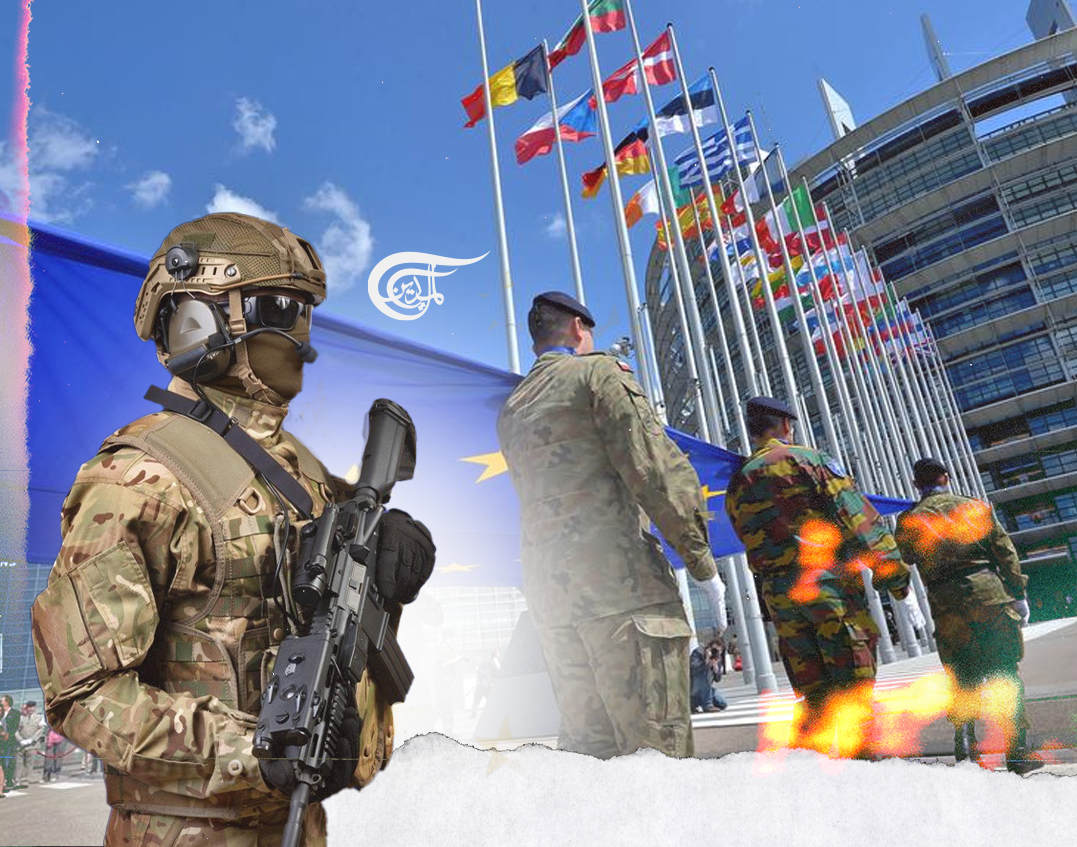A European Army Will Never be Autonomous From the US
The EU’s putative continental military will either supplement US dominance or it will fail.
America’s disastrous retreat from Afghanistan has produced hand-wringing from all sides predicting the impending collapse of the US empire. The discourse has been continuously stoked since the collapse of the US puppet government in South Vietnam and it is neither wholly true nor wholly wrong.
Its global hegemony is certainly far less secure than it was 50 years ago. It is still a fact of the contemporary world however and the failure in Afghanistan is not a mortal defeat even if it does have further detrimental effects on US influence within the region.
To a significant extent, the declinist discourse is of great utility to the military-industrial complex as the specter of rising (if illusory) challengers to US dominance creates a near-limitless market for the permanent war economy.
This same discourse also enables US policymakers to delegate their regional policies to local gendarme regimes that execute American foreign policy by proxy. This clearly describes the so-called ‘Nixon Doctrine’ of the Middle East in the 1970s when "Israel" and particularly the Shah of Iran served as its loyal attack dogs.
Now the Afghan debacle appears to have created an opening for a new vehicle of American influence. The head of the European Commission, Ursula Von der Leyen singled out the US’ failure as evidence that the time has come for an EU army.
Such a momentous step has been long in the offing if only ever discussed with hushed tones in Brussels. Far more than simply pooling member-states armed forces, a common European army would by extension entail a common European foreign policy, bringing the Churchillian vision of a ‘United States of Europe’ closer than ever to completion.
Europe has often smarted under its subservience to the United States which has since 1945 assumed virtual military custodianship of the continent. The leading states have also had multiple points of serious difference with their American senior, from the 2003 invasion of Iraq to the Trump administration’s 2018 withdrawal from the Iran nuclear agreement. However, as in the latter case, the continent has invariably been forced to toe the American line, however willingly or otherwise.
The EU has acquired a reputation of, if nothing else, consistency and dependability in its adherence to the American-constructed ‘Liberal International Order.’ By its being one of the defining institutions of that order, it feels much less freedom to flout its rules than the Americans do.
It is because its existence hinges on the survival of the post-war international system that, however much EU bureaucrats crow about ‘strategic autonomy’ from North America, both continents will have broadly the same interests and objectives. A united Europe would still be a junior partner to the US but it would be far less of a proxy as well. Both sides of the Atlantic have dramatically stepped up their military interventions in sub-Saharan Africa in the last decade. Given its continuing neo-colonial importance to Europe, Washington likely would see little reason not to grant it free reign there. Similarly in the former-Soviet sphere, European interests are far more direct than American ones and the economic absorption of Russia and its near abroad would also benefit the US even if secondarily.
As if to reiterate that a European Army would not mean a radical break with the Americans, Von Der Leyen underlined the importance of the project within the framework of NATO.
A Pipe Dream?
Such a project remains entirely theoretical for the time being. If implemented, it will generate immense resistance within the bloc. By far the most enthusiastic national leader is French president Emmanuel Macron. He is however desperately unpopular and faces re-election next year, almost certainly against the ‘National Rally’s Marine Le Pen, whose political brand is built on antagonism with Brussels.
Creating a unified European foreign policy would also be an unprecedented achievement as there are vast divergences in priorities between the member states. For instance, France and Germany’s relative desire for conciliation with Russia is not shared by Poland, the Baltics, and other East European states who have understandable apprehensions about living between a Russo-West European Entente.
Similarly, the United Kingdom’s overriding foreign priority from the birth of its imperial era has been preventing political and military unity on the continent. While a European army may not existentially worry those in Washington, London’s less-than-splendid isolation now places it much too close not to be uneasy with the prospect.
This whole discussion may well turn out to be entirely academic in a few years if the EU itself ceases to exist. Few developments could prove as fatal to European integration as a far-right Le Pen presidency. With such a scenario we will have to hold our breath until late next year before Ms. Von Der Leyen’s plans begin to take concrete form.

 Samuel Geddes
Samuel Geddes
 5 Min Read
5 Min Read












